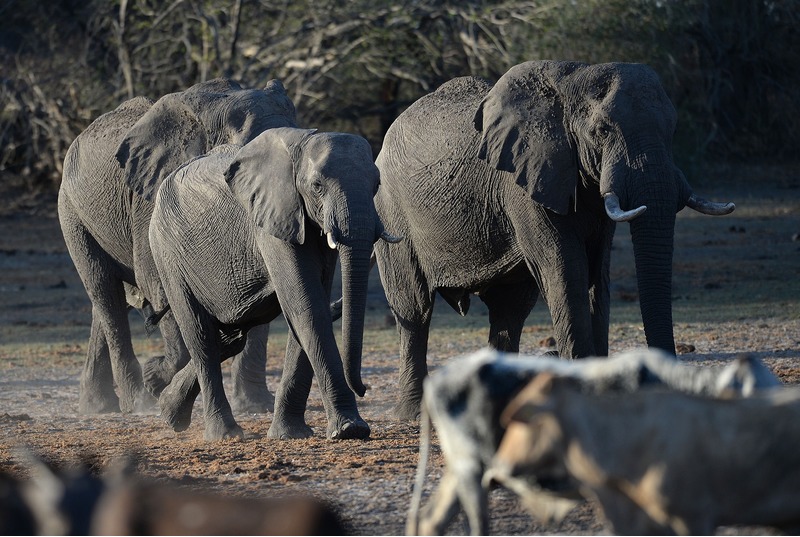
Gaborone — Botswana’s Department of Wildlife and National Parks has revealed that it is witnessing an increase in elephant mortalities in the Chobe National Park in the north-western part of the country.
In a statement, the department said it has been monitoring the situation closely since May when reports of elephant deaths and some other wild animals were recorded.
“The mortalities seemed to stabilise, but in the past two months, higher rates of mortalities have been recorded. More than 100 elephants are estimated to have died naturally in the past two months. This week nine mortalities were recorded in the Chobe River front and Nantanga area respectively,” the department said.
Preliminary investigations suggest the elephants are dying from anthrax while some died from drought effects, a situation that all animals wild and domestic are currently facing.
“Due to the severe drought, elephants end up ingesting soil while grazing and get exposed to the anthrax bacteria spore. The animals are also travelling long distances in search of food which leaves some highly emaciated, ending in death,” the department said.
The department said it will be burning anthrax related carcasses in order to reduce chances of spreading the disease to other animals. Other carcasses will be dealt with in consideration of the location and other environmental considerations.
The department and collaborating partners are in the process of carrying out further investigations and verifying the number of elephants and other species that have died in the park and other protected areas.
“The public is advised to report any dead animals they find to the Department of Wildlife, Botswana Defence Force and Department of Veterinary Services to enable appropriate checks and disposal of the carcass. The public is further advised not to touch or eat any meat/animals they find dead under any circumstances,” the department said.
Meanwhile in another related matter, Botswana has warned its citizens to take precautions amid fears that the current heat wave could result in deaths. Daytime temperatures have soared to as high as 39-40 degrees celsius in recent days as the heat wave continues to pound the country.
According to permanent secretary in the Ministry of Health, Ruth Maphorisa, as extreme heat continues to be experienced throughout the country, people may experience heat cramps, heat exhaustion, heat stroke and severe sunburn.
Maphorisa said symptoms of excessive heat include headaches, fatigue or tiredness, heat cramps (which may lead to stroke), chipped lips, dehydration, excessive sweating, painful muscles, fainting, rapid pulse, confusion, nausea, dizziness and shallow breath.
“Anyone experiencing any of the above symptoms should visit the nearest health facility for immediate health attention,” said Maphorisa.
She called on Batswana to, among other precautions, drink plenty of fluids, wear sunhats or use umbrellas when exposed to the sun, limit alcohol and caffeine intake, avoid exposure to excessive sunshine, and avoid strenuous physical activities.
She also urged members of the public to wear loose-fitting, lightweight, light-coloured clothing that cover as much skin as possible and to stay indoors. Reports indicate that two years ago, at least four people lost their lives due to the heat wave.
Image Upload
Add image